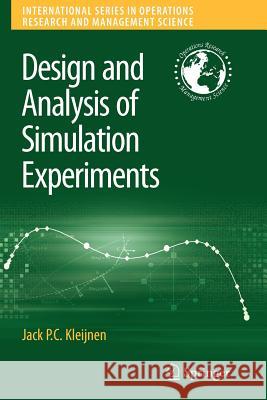Design and Analysis of Simulation Experiments » książka
Design and Analysis of Simulation Experiments
ISBN-13: 9781441944153 / Angielski / Miękka / 2010 / 220 str.
Design and Analysis of Simulation Experiments (DASE) focuses on statistical methods for discrete-event simulation (such as queuing and inventory simulations). In addition, the book discusses DASE for deterministic simulation (such as engineering and physics simulations). The text presents both classic and modern statistical designs. Classic designs (e.g., fractional factorials) assume only a few factors with a few values per factor. The resulting input/output data of the simulation experiment are analyzed through low-order polynomials, which are linear regression (meta) models. Modern designs allow many more factors, possible with many values per factor. These designs include group screening (e.g., Sequential Bifurcation, SB) and space filling designs (e.g., Latin Hypercube Sampling, LHS). The data resulting from these modern designs may be analyzed through low-order polynomials for group screening and various metamodel types (e.g., Kriging) for LHS. Design and Analysis of Simulation Experiments is an authoritative textbook and reference work for researchers, graduate students, and technical practitioners in simulation. Basic knowledge of simulation and mathematical statistics are expected; however, the book does summarize these basics, for the readers' convenience. In addition, the book provides relatively simple solutions for (a) selecting problems to simulate, (b) how to analyze the resulting data from simulation, and (c) computationally challenging simulation problems.











